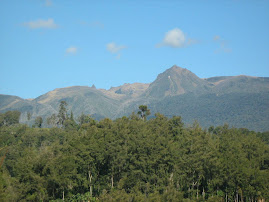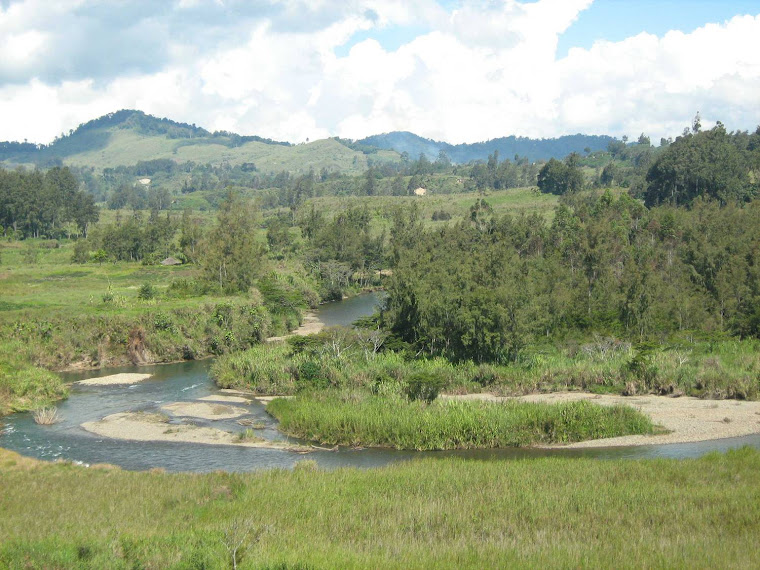
Biodiesel: an option for PNG
By Mathew Yakai in China
THE pedestrians are stranded in Port Moresby when Public Motor Vehicle (PMV) operators decide to pull off the road.
The action by the PMV owners send forth ripple of bad effects. Many do not go to work, students stay away from classes, public service mechanism comes to a stop, and business houses close their doors and many more.
Literally, the country’s economy comes to a stop.
The operators are business men and women in their rights. But they have paid a lot of money to maintain their business that directly keeps Port Moresby and PNG economy moving along with rest of the world.
In the recent past, vehicle parts have been very expensive.
But one of the components that is more expensive for them to afford almost every day to keep the engine running is the fuel. If passengers do not pay their bus fare well, then the bus operators will pull off their vehicles and the economy is affected eventually.
Fuel, fuel, fuel…that's the main reason many alleged that America invaded Iraq unilaterally, by bypassing UN conventions, and now stuck in the country, and still sending back bodies of American soldiers.
The high fuel price we complain of in PNG is the cause of global politics. PNG can not do any thing at the moment, as long as we remain importing, we will still pay more, and the price is eventually passed down to the poor passengers.
However, there is an option available for PNG to tap into, according to a PNG student currently studying in China.
Gene Drekeke Iyovo is doing his Masters of Science, majoring in Biotechnology at Jiangnan University of China, School of Biotechnology in Jiangsu Province.
His topic of research is “Use of waste and optimization of Biodiesel production from microorganisms.”
Gene hails from Upper Asaro in the Eastern Highlands Province. Specifically, the proud son of Wamiufa tribe. He left his young baby and wife in 2007 to undertake studies under the Chinese Government Scholarship.
The young Ambo who has a degree in Food Science/Technology (BSci) from the University of Technology strongly believes that the fuel problem in PNG can be solved if food wastes and animal feces particularly chicken waste such as from Niugini Table Birds/Zenag and molasses waste from Ramu Sugar can be converted to diesels that can run an engine.
A little nutritive ingredient waste given to the microorganisms can increase high quantity of biodiesel.
“I give attention on waste from factories such as fish off cuts decay-IFC,Tuna, chicken waste etc which are very high biodiesel potential was shown from chicken feces,” Gene said.
“The aim of the study is to utilize chicken/fish waste by feeding microorganism that feed on them, factory waste from poultry or fish industries to produce biodiesel in PNG.” The young scientist said.
Optimistic Gene said he is confident the context is highly confidential due to the very high potential of the new microbial biodiesel that can easily replace all fuel demand.
“The fact that microorganisms take only 20 seconds to reproduce and multiply meaning financially low operational cost, high production yield in less time.”
Gene said no modification on the engine is necessary to current vehicles running on fossil diesel, no Carbon dioxide is produced from exhaust pipe-environment friendly; engine can start even below -10 degree Celsius(ASTM –American Society for Testing and Materials -specification) and of course it is a renewable energy source-to be established and stay forever.
“Glycerin is another important by-product, it has thousand of uses, one of the most important use in PNG can be treating it to wood products for lighting house, stove. It is proven to burn for 24 hours.”
“It is very important and needs further study and backings from organizations for study establishment.” Gene said.
Gene said his study is very beneficial to PNG or any other, the race for fuel, fuel shortage, high fuel prices, increasing prices of goods and services which are these day’s problems.
“Biodiesel from bacteria is the only answer. The two most important products attained from these microbes will meet our ends which no other biofuel sources (cassava, corn, oil palm) will perform,” he said
The Goroka lad knows how, the knowledge and technology is up for grabs at his China’s university.
“This research urgently needs financial support from PNG government/organizations, national or international firms for full study and establishment of the system for major production.
In the beginning was microorganism. Then from microorganism came oil. But now oil is fast depleting. In the future there will be no oil, but there will be microorganism.
“Does it make sense to invest in microbial fuel if we can?” he asked
In 2000, biodiesel became the only alternative fuel in the USA to have successfully completed the EPA-required Tier I and Tier II health effects testing under the Clean Air Act.
It is reported that 200 factories are now in operation for conversion of Corn starch to ethanol fuel biofuel
These independent tests conclusively demonstrated biodiesel’s significant reduction of virtually all regulated emissions, and showed biodiesel does not pose a threat to human health nor the environment.
Biodiesel contains no sulfur or aromatics, and use of biodiesel in a conventional diesel engine results in substantial reduction of unburned hydrocarbons, carbon monoxide and particulate matter.
A U.S. Department of Energy study showed that the production and use of biodiesel, compared to petroleum diesel, resulted in a 78.5% reduction in carbon dioxide emissions. Moreover, biodiesel has a positive energy balance.
For every unit of energy needed to produce a gallon of biodiesel, 3.24 units of energy are gained.
With agricultural commodity prices approaching record lows, and petroleum prices approaching record highs, it is clear that more can be done to utilize domestic surpluses of vegetable oils and animal feces while enhancing our energy security.
Because biodiesel can be manufactured using existing industrial production capacity, and used with conventional equipment, it provides substantial opportunity for immediately addressing our energy security issues.
If the true cost of using foreign oil were imposed on the price of imported fuel, renewable fuels, such as biodiesel, probably would be the most viable option.
Increased utilization of renewable biofuels results in significant microeconomic benefits to both the urban and rural sectors, and the balance of trade.
In addition to being a domestically produced, renewable alternative fuel for diesel engines, biodiesel has positive performance attributes such as increased cetane, high fuel lubricity, and high oxygen content, which may make it a preferred blending stock with future ultra-clean diesel.
China, given its huge population, land mass with the rapid economic growth has been criticized by the Western Countries for environmental pollution. Given that, China has come up with policies to minimize environmental pollutions, from Green Economy to Green Olympic and most have proven successful.
The government has also passed basic laws to fully carry out research on renewable energies, which came into force in 1 Jan, 2006, and that formed part of the Mid-long Term Development of Science and Technology from 2006 to 2020.
These laws and policies are directly inline with the Central Government’s National Policies and Economy.
Gene’s study in China is an opportunity because his Jiangnan University of China, School of Biotechnology in Jiangsu Province is carrying out researches inline with the government policies and laws.
If Gene succeeds in his research, it will be of great importance to PNG in the long run. However, past experiences have shown that when PNG students return after gaining relevant qualification, the government and concerned institutions do not provide assistance to fully utilize their knowledge.
Chinese government has recognized the lack of human resources in various aspects by granting its scholarship for PNG students to study in China. Gene is one of the many current students.
The Chinese Government has done its part. The ball is now in Gene’s research success. Upon completion, we all hope that the domestic biodiesel will be produced and our local PMV owners will happily run their services, boosting our economy.
Apart from studies, Gene enjoys the local Chinese food, meeting a lot of friends from China and learning more about China’s long history.
“China is an amazing country of more than 5000 years of history, largest in population but with surplus food supply and the current dynamic growth in economy has driven me to see how a country of ancient knowledge and wonders, in ancient architecture and mysteries. Of course the writings are really intriguing-a character for every word”
“I wish I have more time to learn. My experience here (China) is leading me to believe China as a country of originality in terms of customs and beliefs as being preserved. People are being obedient, conservative, friendly and considerate.
“The people’s power of unity, cooperating, respect and tolerance for one another is here”. Gene said
Gene thanks the Chinese government for providing the scholarship to study in China.
“I believe this opportunity will benefit PNG in greater ways in research, development and technology.”
Gene can be contacted for more information on his research via email: drexgene@yahoo.com or ph: 086 13771426219
From next week onwards, I will focus my commentaries on Olympics and its history and the forthcoming Beijing Olympic in August 8 this year.
By May 18, 2008, I will have eleven Sundays to write on the Olympics and its significance on World Peace which Beijing is promoting.
According to PNG embassy in Beijing, China, PNG will have three representatives, two in swimming and one in boxing. The PNG Olympic Committee or PNG Sports Federation can contact me on m_yakai@hotmail.com with information on our athletes and latest progress to incorporate in my column.
The PNG embassy in Beijing under the good care of Ambassador John Momis have bough two tickets each for every PNG students in China to watch the Olympic and we are excited to support our home team.
Welcome to Beijing!
Note: Asia-Pacific Perspective: China + looks at Chinese society, culture, economy, governance and China’s role within the Asia Pacific region and the world over. It mainly focuses on how Oceania can learn from China’s experience. The writer is a PNG student in China.









No comments:
Post a Comment